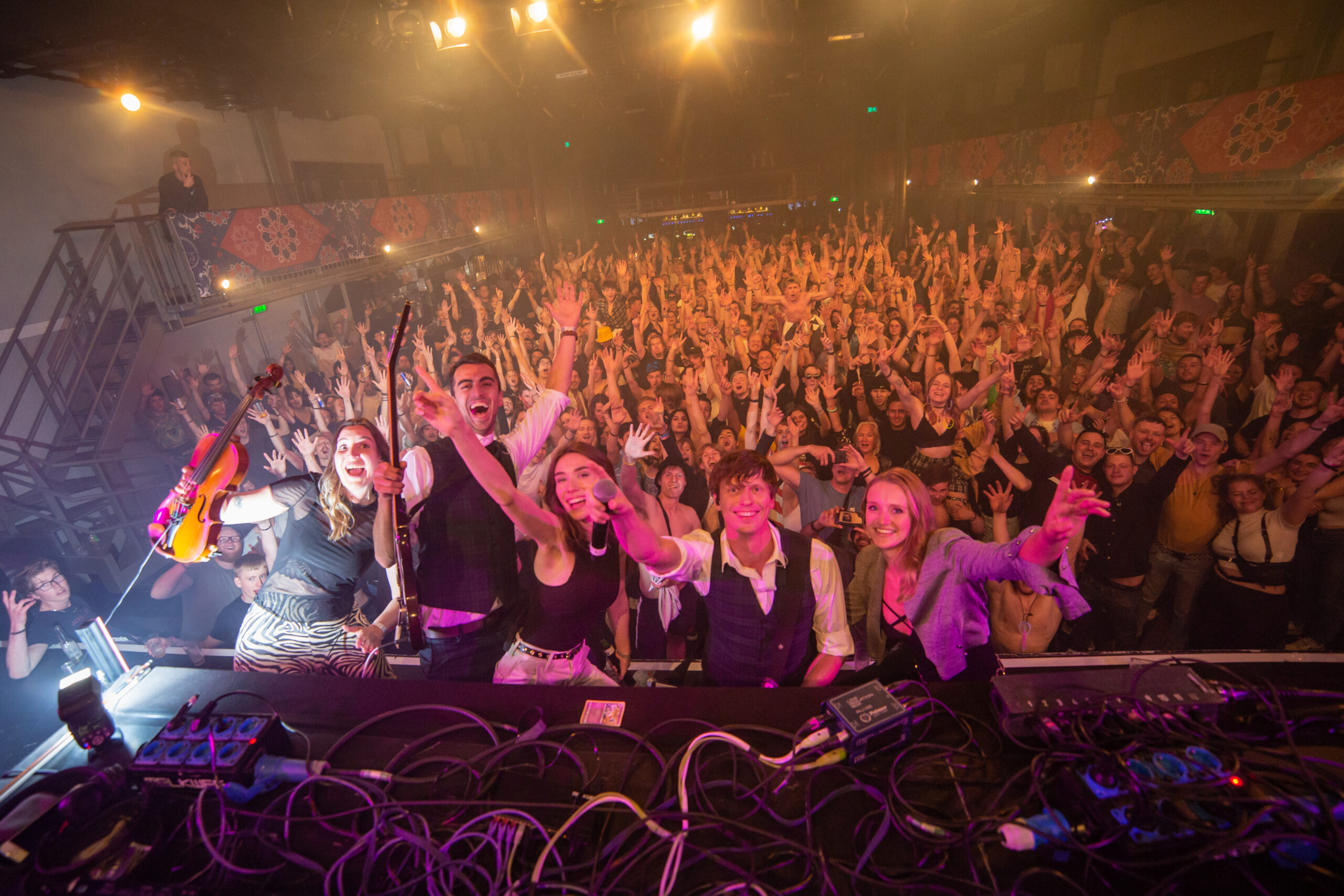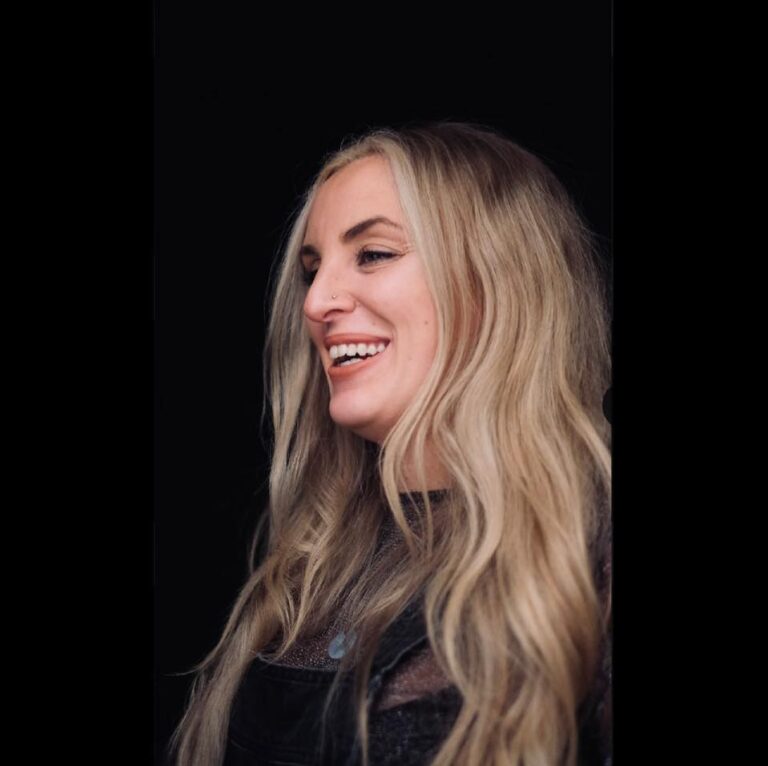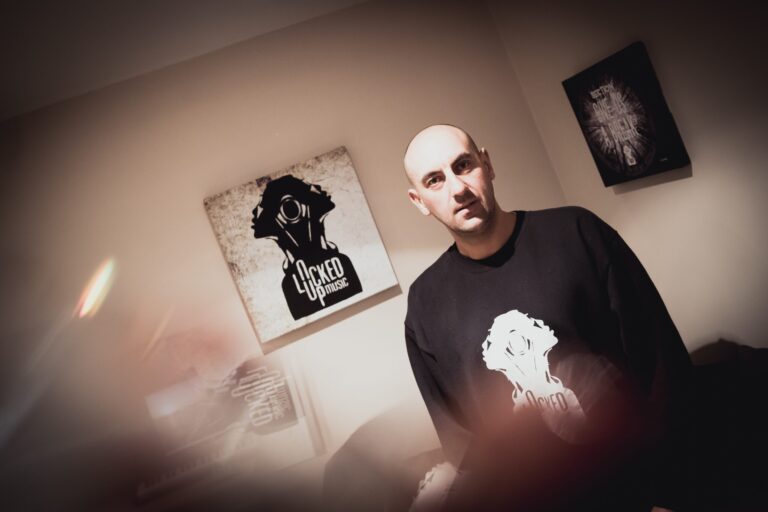Talking about crystallizing vision by reaching new highs: T & Sugah’s new debut album called Sky is out now on Liquicity.
The Dutch drum & bass aficionados arrive full circle: Sky sees Robin Storm and Philippe Jouneghani translating the album into an extensive live show, making it all the more a milestone achievement while capturing the most comprehensive exposé of the T & Sugah sound so far.
We caught up with the duo and delve into the thick and thin of the album’s creation and how it feels to complete that victory lap. Read on for the full story.
Sky is the name of the album, and also the title track. What’s the story?
Robin: The name actually consists of multiple layers. We started writing this song, shortly after I went on holiday to Scotland, to Isle of Skye. The lead of this track is actually layered with bagpipe sounds. It gave us that Scottish feeling – also recognizable through the incorporated hymns in the song, even though the hymn is actually Arabic (laughs). These aspects combined had a certain air of wisdom to it, so we decided to go with Sky as the main theme.
Philippe: It captures that feeling of endlessness and grandeur associated with the sky. We really wanted to have that on the album. It represents our sound at large; euphoric, anthemic and huge. Deciding on this didn’t take a lot of time and felt right rather soon.
When did you officially start to think about creating a full album?
Philippe: We realized we got so much material still coming. What if we would release it altogether on the same label? As an overarching release. Finishing at least twelve songs for the album would be easily done, we thought…
Robin: It clicked gradually during a period of months. We started to think about doing an album, then discussed it with Liquicity, and then we inventoried what would become the basis for the album.
You easily managed – with fifteen tracks and two interludes
Robin: We were aware through other artists about the challenges when writing an album. This decision usually marking the beginning of a 1-2 year-period. Nevertheless, with roughly twelve tracks done, we felt more than ready. So we started to pick which ones we would use and finish. But combining it all into a whole… ultimately cost us months, perhaps a whole year.
Was there a track on Sky that really got a second chance, after being kept a long time in your project library?
Philippe: Yes, that would be Don’t Leave. This one dates back ages.
Robin: Something like 2014, 2015. The drop is inspired by The Prototypes, their sound was very influential during that period.
Philippe: The story of this song reminds of Star Wars (1, 2 & 3). We had a good idea lying around, but the timing wasn’t right yet. We intended on keeping it for the future.
Robin: We also knew that at some point our skills would catch up.
Did you then manage to quickly finish Don’t Leave?
Robin: Eventually yes, but with lots of tweaking. The track is extensively layered with sounds. Getting everything right, it takes some time. But after leaving the project alone for so long, you easily notice what the previous version missed. After that, it’s easier to finish.
How much of the original version was usable?
Robin: We used to work in FL Studio but currently we use Cubase. The reason we made the transition: FL Studio could be very glitchy. Projects would sometimes stop working correctly, forcing me to spend a whole day on repairs. We intended on finishing Don’t Leave in Cubase. The project didn’t work correctly in FL Studio any more. I managed to bounce as many of the stems as possible from FL to Cubase. Some elements had to be remade; recreated through listening. Like the drums. But we managed to get it done.
Any personal favourites on Sky worth mentioning?
Philippe: Because of the lead sounds, Your Way is one I am really happy with. Robin is focused more on production, while I do the DJ’ing. From the perspective of a DJ, Your Way is really the bread and butter.
Robin: In Control really is cool in my opinion. Something else than we usually make. But that’s what this journey’s been about, really. The track went through many changes before we wrote the final drop. A less sudden version with a drum break, followed by the lead section consisting of horns. The tune is exactly right now. We also really love the vocal from Mara Neacia. The fact that the song turned out so different from our other songs, to me, makes it one of the favourites. Essentially, we parted from our usual approach, but managed to make it work.
Let’s go back to the initial steps while compiling the album. How did you approach this?
Philippe: I really went for it, making many lists (even getting Excel involved). Old ideas were re-evaluated, and we ended up with a ‘best of’ selection. Still, there are tracks left to finish which did not make the album. You will have to make concessions at some point.
Robin: There are some even better tracks that didn’t make the album. Yet at some point we had to say: ‘this album is a snapshot’ otherwise you will keep postponing the release. Now, we also have material left for the next release.
Philippe: That’s the beauty of a journey like this. If you don’t go forward with making these decisions, you won’t release anything. I am happy with the results in hindsight. But yeah, we were really approaching this procedurally.
Robin: Yes, each studio session was kicked off with an overview. ‘What tracks do we have now?’ and ‘What needs to be done?’ became starting points. It’s quite a transition to go from writing a few tracks together to releasing a whole album with fifteen songs.
Philippe: You are constantly going from one project to another, based on how much potential these have. Still, sometimes the potential doesn’t get reached as much as hoped. Keeping a structured approach is a challenge during the making of an album like this.
You state that both have these roles as DJ and as producer. Does Philippe at times offer a second pair of ears to fend off the tunnel vision?
Robin: Definitely. Usually we decide together on creative matters. I am also often involved with the more time-consuming portion of work. It usually starts with coming up with an idea, separately or together. We lay down the idea, and then I expand on that; production, sound design, mix down, etc. Often times, we spend at least one session a week together in the studio. Philippe then indeed offers a second set of ears, and together we steer the project towards completion.
What’s your take on this, Philippe?
Philippe: Taking different approaches makes it all the more interesting. I play guitar, Robin plays the keyboard. It provides for an extra dynamic.
Are you more involved with providing the initial ideas?
Philippe: We both are. Sometimes I am riding a bike through the city and an idea pops up. It ends on my voice recorder, then the idea evolves from there.
Robin: I think this is true for both of us; to capture essence through recording and checking afterwards. I also do this, while messing about in the DAW (digital audio workstation) – sometimes testing a new plugin. I arrive at ideas through a technical approach.
Philippe: At times, a sound can be the inspiration. Your Way for example, inspired by a sound; the bass. Other songs have a totally different starting point. Perhaps a recorded catchy melody. A sound, or a whole song, can start something new.
Given that Sky is your debut album, what specific lessons also come to mind when looking back now?
Philippe: A cliché, but writing an album often comes with underestimating the amount of time involved.
Robin: On the one hand, it helped that we had quite some material done already. Even though you can generate a lot of ideas in a relatively short period, readying so many tracks together is a lot of work. Previously, I planned to move somewhere else for a couple of months, meaning to stay involved with the project remotely. But afterwards, it’s a good thing I didn’t move. Getting everything in order in the studio, like mix-downs, took a huge chunk of time.
We would test tracks in the club and sometimes had to redo the mixes afterwards. Roughly eight tracks were being fine-tuned at some point, each had to be levelled coherently.
Philippe: Besides creating this album, we were also working on creating an album live show. This, too, is easily underestimated (laughs). It’s about doing it for the first time, so you figure out why everyone says it’s hard. All these lessons will transition into the writing of the next album.
Robin: Releasing our debut album Sky is special, too, because I quit my education some years ago. I have that feeling of completion thanks to creating this big project. So it feels like graduating.

It seems like a completion indeed, especially given how T & Sugah started, with the idea of combining electronic music with live performance. How does finally achieving this feel to you, Philippe?
Philippe: It felt nostalgic to be on the stage with my old Gibson guitar. As if time stood still, yet so much had happened, too. A special feeling I didn’t expect, but it felt welcoming at the same time. It does give an extra dimension to music, playing it live.
Robin: There’s also an amount of added tension, while performing live. DJ’s is a skill in its own right, but when you are pressing buttons on a device, you become less aware of doing something directly, something that can be messed up very easily. Playing on a guitar though – your fingers are on the strings. You know way more that it’s up to you.
Philippe: It took a lot of practice to return to my previous level and really get into it.
You kicked off your live album showcase tour in De Melkweg, Amsterdam. Did you plan many repetitions prior?
Robin: Yes, plenty. The preparations consisted of two parts: The technical part for one, consisting of bouncing the stems and assigning playable midi-instruments to play live. Everything had to be into Ableton, so we could make it workable in a live session. The weeks after were used for repetitions with all the instrumentalists and Mara.
Philippe: Violins, guitars and vocals is something we worked with previously, but keytars and trumpets; not so much. Combining these instruments into a live piece was a huge undertaking.
How many people are involved on the stage live?
Robin: There are five of us.
Philippe: Mara Neacia on the vocals, Stella Hrvatin on the violin. Francina van Riel played the trumpet, and us two; Robin on the keytar and me on the guitar. For one song, Robin also takes out the acoustic guitar.
Robin: What I really like about this project: often times live shows are either strictly electronic or completely live. Like a DJ-set, or a live show in Ableton only, versus live with a band. We managed to create a hybrid, switching between focus on live performance and dj-sets. We wanted to keep that club feeling, something dynamic.
Philippe: That was very important to us: making a live show worthy of clubs. We aim to do more club shows with this live show, going further, than being a band that performs during the daytime.
T & Sugah – Sky is out now on Liquicity
Follow T & Sugah: Facebook / Soundcloud / Instagram


